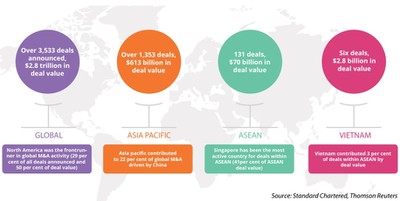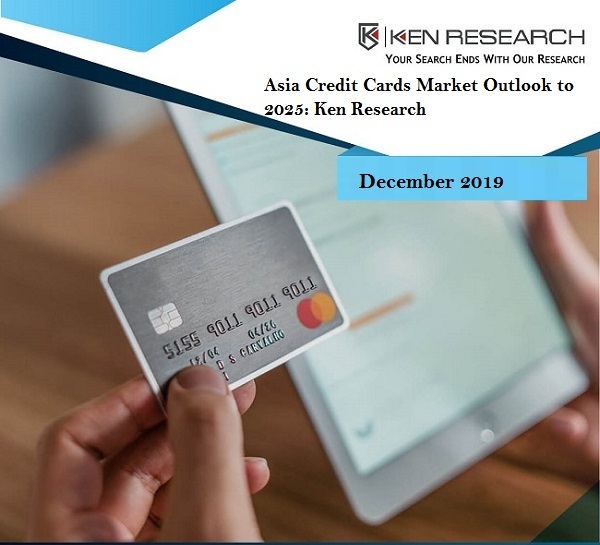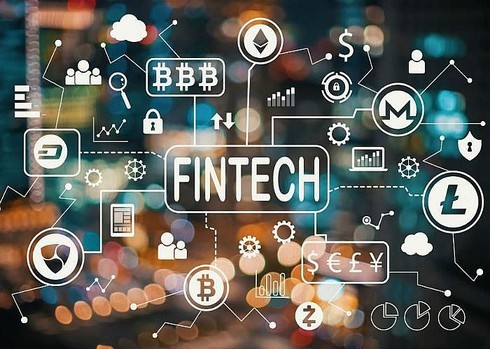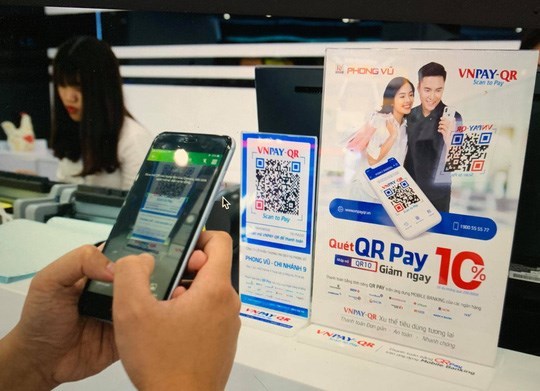- © Copyright of Vietnamnet Global.
- Tel: 024 3772 7988 Fax: (024) 37722734
- Email: [email protected]
fintech
Update news fintech
EVFTA means much more than tax holiday
 The following are some key points for those who do business with the EU to adopt a comprehensive view on the EU-Vietnam Free Trade Agreement (EVFTA) and the EU-Vietnam Investment Protection Agreement (EVIPA).
The following are some key points for those who do business with the EU to adopt a comprehensive view on the EU-Vietnam Free Trade Agreement (EVFTA) and the EU-Vietnam Investment Protection Agreement (EVIPA).
Vietnam’s fintechs increasingly attractive to foreign investors
 The Vietnamese finance market has seen many investment deals by foreign investors who have poured money into startups, showing the attractiveness of the new industry.
The Vietnamese finance market has seen many investment deals by foreign investors who have poured money into startups, showing the attractiveness of the new industry.
AI is trend at Vietnam’s startups
 Voice recognition technology, artificial intelligence (A.I), blockchain and big data are the major trends at startups in Vietnam in 2020.
Voice recognition technology, artificial intelligence (A.I), blockchain and big data are the major trends at startups in Vietnam in 2020.
2019: prosperous year for Vietnam’s e-commerce, fintech firms
 Start-up activities are growing fast despite the slowdown of the global economy. The gap between Vietnam and the two regional leading countries, Indonesia and Singapore, has narrowed.
Start-up activities are growing fast despite the slowdown of the global economy. The gap between Vietnam and the two regional leading countries, Indonesia and Singapore, has narrowed.
Flurry of activity upcoming in M&A
 More Singaporean investment is expected to flow via mergers and acquisitions (M&A) in the months to come in Vietnam, focusing on finance, property, and fintech.
More Singaporean investment is expected to flow via mergers and acquisitions (M&A) in the months to come in Vietnam, focusing on finance, property, and fintech.
Only 2 percent of startups are 'real' startups: experts
 The others are just companies following traditional business models with a bit of innovation.
The others are just companies following traditional business models with a bit of innovation.
Investors show keen interest in high tech startups
 Investors say they have huge amounts of capital in hands and are seeking good technology startups to disburse the money.
Investors say they have huge amounts of capital in hands and are seeking good technology startups to disburse the money.
Regulatory sandbox: the key to fintech success
 The Vietnamese fintech startup ecosystem is now home to more than 150 companies and brands, covering a broad range of services from digital payments and alternative finance to wealth management and blockchain.
The Vietnamese fintech startup ecosystem is now home to more than 150 companies and brands, covering a broad range of services from digital payments and alternative finance to wealth management and blockchain.
Reflecting reality for foreign owner ratios
 A recent draft decree from the State Bank of Vietnam raised eyebrows with its contents on ownership ratios for overseas groups when it comes to payment intermediary services.
A recent draft decree from the State Bank of Vietnam raised eyebrows with its contents on ownership ratios for overseas groups when it comes to payment intermediary services.
Will Vietnam be sued if it restricts foreign investments in fintechs?
 The State Bank of Vietnam (SBV) affirmed that regulations are in line with international commitments, which show Vietnam's management rights in the field of payment services.
The State Bank of Vietnam (SBV) affirmed that regulations are in line with international commitments, which show Vietnam's management rights in the field of payment services.
Ken Research reveals Asia credit cards market outlook to 2025
 The report provides a comprehensive analysis of the credit cards industry within Asia covering various aspects.
The report provides a comprehensive analysis of the credit cards industry within Asia covering various aspects.
Payment-related solutions attract most funding in Vietnamese fintech
 Financial technology (fintech) firms offering payment-related solutions secured the most funding in Vietnam, according to the FinTech in ASEAN: From Startup to Scale-up report.
Financial technology (fintech) firms offering payment-related solutions secured the most funding in Vietnam, according to the FinTech in ASEAN: From Startup to Scale-up report.
Alibaba’s Ant Financial quietly acquires stake in Vietnamese e-wallet firm
Ant will not control more than 50% of eMonkey, but is expected to have significant influence and provide technical expertise to the e-wallet
FOL concocted for fintech segment
 Local regulators are ratcheting up pressure in a bid to curb the risks from spreading financial technology by setting up a foreign ownership limit of 49 per cent.
Local regulators are ratcheting up pressure in a bid to curb the risks from spreading financial technology by setting up a foreign ownership limit of 49 per cent.
Banks and fintechs: the new and powerful union
 The cooperation between banks and fintech firms is fundamentally changing the way the financial sector operates.
The cooperation between banks and fintech firms is fundamentally changing the way the financial sector operates.
Vietnam startups receive US$750 million in funding in Jan – Oct
 The growth in investment size in Vietnamese startups over the past few years makes the target of having tech unicorns right in Vietnam feasible, Chu Ngoc Anh, minister of Science and Technology stressed.
The growth in investment size in Vietnamese startups over the past few years makes the target of having tech unicorns right in Vietnam feasible, Chu Ngoc Anh, minister of Science and Technology stressed.
Cash habit, poor infrastructure prevent to non-cash economy in Vietnam
 While non-cash payments are admittedly on the rise, the cash payment habit and limited development of technology infrastructure are big problems for the country’s non-cash economy, experts have said.
While non-cash payments are admittedly on the rise, the cash payment habit and limited development of technology infrastructure are big problems for the country’s non-cash economy, experts have said.
Vietnam’s booming fintech funding on Singapore’s heels
 Vietnamese financial technology startups are quickly catching up with Singapore in attracting Southeast Asian venture capital funding, according to the Japan-based Nikkei Asian Review.
Vietnamese financial technology startups are quickly catching up with Singapore in attracting Southeast Asian venture capital funding, according to the Japan-based Nikkei Asian Review.
Vietnam named second in ASEAN in fintech funding in 2019
 Vietnam’s fintech firms secured two of the top three largest funding deals in ASEAN in 2019.
Vietnam’s fintech firms secured two of the top three largest funding deals in ASEAN in 2019.
Fintech to drive digital payments: Visa
 Fintech companies could hold the key to driving last-mile adoption of digital payments and unlocking vast cash displacement opportunity in Southeast Asia, including Vietnam, according to Visa, a world leader in digital payments.
Fintech companies could hold the key to driving last-mile adoption of digital payments and unlocking vast cash displacement opportunity in Southeast Asia, including Vietnam, according to Visa, a world leader in digital payments.



















